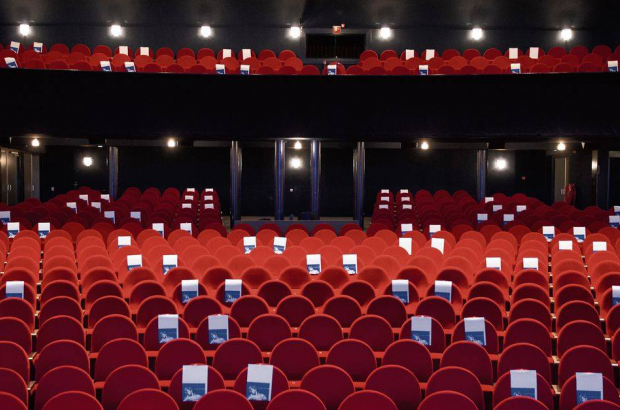- Daily & Weekly newsletters
- Buy & download The Bulletin
- Comment on our articles
Culture in crisis: How is the sector surviving – or not – the pandemic?
‘It will be the major task of our generation to rebuild from this’
Dirk Snauwaert is the director of contemporary art centre Wiels in the Forest neighbourhood of Brussels. Its innovative and experimental programme has become an integral part of the city’s art scene since it opened in 2007.
“There’s lots of space here, it’s not dangerous to visit, and we follow all the safety measures. Nevertheless, people are worried. [In the summer we had] only about one-fifth of the visitors we usually welcome. Tourism doesn’t exist anymore, which means zero visitors from abroad. Understandably, the staff are getting demotivated – who are we working for?
“We survived the first lockdown quite well. Wiels is financed through patrons, ticket sales and a small amount of subsidies. A lot of our budget goes to the exhibited artists: for the current show we commissioned 20 new works. We were able to apply for additional support, digitisation and revitalisation measures, but it’s mainly symbolic, a drop in the ocean. There’s a lot of bureaucracy involved and it requires an incredible amount of accounting. We applied for three measures which each bring in between €5,000 and €9,000. With this, we can pay 20 employees maybe for a few days, and that’s it. The most important support is probably the temporary unemployment.
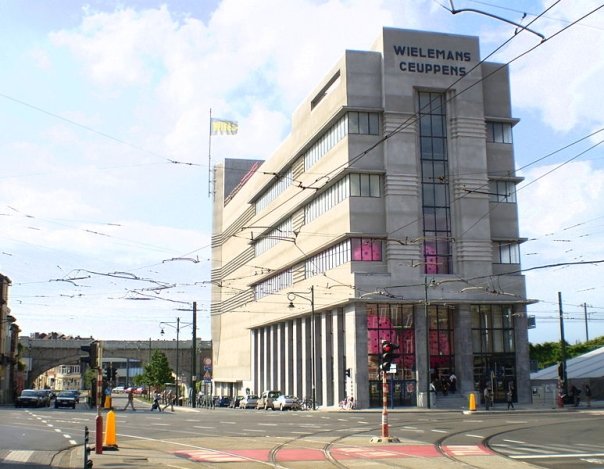
“We had to postpone several exhibitions, and it’s hard to plan for the future. The catalogue for the Broodthaers exhibition next year is almost ready, and we know which exhibitions we want to do, but who knows what will happen? The pandemic also impacts our international residency programme. Some artists had to leave and couldn’t complete the full two months. Some weren’t able to get home at all.
“It’s clear that the political parties have failed completely, lost all credibility, and we’re on our own. The incompetence and disorganisation is frightening. But in Brussels we are used to turning this disadvantage into an advantage. People are resilient. It’s going to be very challenging, and frankly it’s quite depressing. It will be the major task of our generation to rebuild from this.”
‘You might call me a pessimist, but that’s just the reality’
Paul-Henri Wouters is the director of Brussels concert venue Botanique, which usually hosts around 300 concerts a year with a focus on local bands and emerging international talent. It also presents 10 art exhibitions annually.
“We had to learn to adapt on a permanent basis. Plus, our job has become rather robotic in the sense of cancel and postpone, cancel and postpone, which isn’t easy psychologically. In spring we had to cancel everything, and later we focused on artist residencies and live streams. Recently we were allowed to host concerts again, with safety measures in place and smaller crowds. But it’s obvious that the public is afraid to attend, despite everything we put in place to make it a safe experience. What scares me the most is that I feel we’re losing the link with the public. People are simply getting used to not going to concerts anymore. Ticket sales for future concerts, even a couple of months away, are low.

“Naturally, it’s also difficult financially, even though we have less costs when it comes to artist fees etc. Our financial setup is roughly 50% revenue and 50% subsidies. We stopped hiring people from the outside and are trying to make use of temporary unemployment as little as possible. I’m not sure what the future will bring. You might call me a pessimist, but that’s just translating the reality we are living. The question is, what do we do, how do we react? We have to go on and do everything we can that is possible within the restrictions.”
‘We don’t only develop a Plan A, but also Plan B and Plan C’
Patrick Bonté is the director of Les Brigittines, a contemporary arts centre for movement focusing on choreographic works located in an architectural gem incorporating the Brigittines chapel in Brussels’ Marolles area.
“When the lockdown hit in March, we were in the middle of a festival. A lot of performances had to be postponed to next year, not only of the festival but a big chunk of the programme for the entire year. Financially we clearly suffered, but we’re doing OK in the sense that our existence isn’t in danger, thanks to subsidies from the city of Brussels and the Wallonia-Brussels Federation. Luckily, ticket sales don’t play such a significant role in our setup. The most important thing for us was to do everything in our power to pay the artists, because they are affected the most. That’s why we also created a fund with Charleroi Danse to support dancers and choreographers. Artists are being frontally attacked – their profession is under attack, and their financial survival as well. It’s essential to show solidarity. Performing artists live from being on stage and from the exchange with the public, and it’s very tough for them when they’re deprived of that.
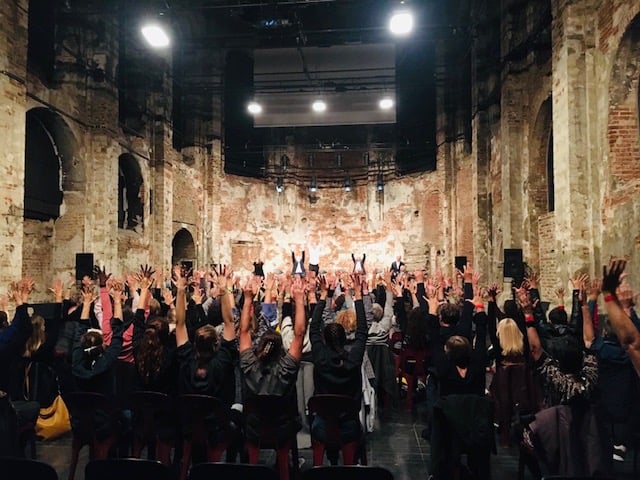
“We have twice as much work as before. So much has to be reorganised, and we have to find solutions for problems we never anticipated. Now we don’t only develop a Plan A, but also Plan B and Plan C. Nevertheless, it’s important to have precise projects and dates, even if they might be subject to change.”
‘We must all work together to build the trust of the public’
Katrien Van Eeckhoutte is general manager of Concertgebouw in Bruges, a cultural centre that stages concerts and contemporary arts.
“The Concertgebouw closed from mid-March to the end of June. All performances and events were cancelled or postponed, and employees were assigned to teleworking or placed on temporary unemployment. At the end of April we decided to announce our programme for the 20-21 season. So many people had worked very hard on it for a long time, and we wanted to offer them – and our audience – some perspective. We are closely monitoring the further evolution of the public health situation and are fine-tuning our policy accordingly.
“The crisis resulted in a substantial loss of income. We requested emergency funding from governments, including subsidies and the city of Bruges’s tourism recovery plan. A number of employees were placed on temporary unemployment. We tried to respond to the emergency situation in which artists and culture workers found themselves when their performances went up in smoke. We put out a call to our audiences to donate the value of cancelled tickets, which was very successful. We also foresee a significant loss of revenue in 2021.

“Our audiences are eager for performances but at the same time slow to come back. We had to scrap subscription formulas and quantity discounts, so people are buying fewer tickets than usual. We also see a lot more last-minute purchases. The disappearance of international tourism – both leisure and business – is problematic for Bruges. So we have focused on local visitors, who previously made up the majority of our audience in any case. International conferences in our halls have been cancelled or postponed, and catering activities are also very limited in number.
“Next year will be a loss, in any case, and our partnerships will come under pressure. There is a lot of uncertainty, especially for art institutions that generate a great deal of their own income. It will be a challenge to boost that income again, that recovery will take years. We find the attitude of the governments towards subsidies unpredictable. We are dependent on unpredictable audience and customer behaviour and so must all work together to build the trust of the public and our partners.”
‘Abandoning the cultural sector says a lot about political priorities’
Catherine Lemaire is the programmer for non-profit Les Grignoux, which manages the art-house cinemas Parc, Churchill and Sauvenière in Liège and the Caméo cinema in Namur. The 40-year-old cultural and social association stages numerous events and educational projects.
“The specific challenges for Les Grignoux are rebuilding the relationship with its audience, giving them the desire to return to cinemas, maintaining a financial course, screening films that fit our mission, and continuing to animate our venues with director talks and debates.
“Financial losses have been important. Since the reopening, more aid for corona expenses should arrive, but it does not cover all our losses. There was a 50% drop in audience figures in the three months following reopening. We placed the majority of staff on technical unemployment in March to June, and from July to September we reduced staff, both for the cinemas and catering facilities. We haven’t had to lay anyone off. Maintaining our staff in employment is an absolute priority. Financially, 2019 was a very good year and we are using the profits to compensate, partially, the losses in 2020. But the consequences will be felt for a number of years and that’s the challenge.
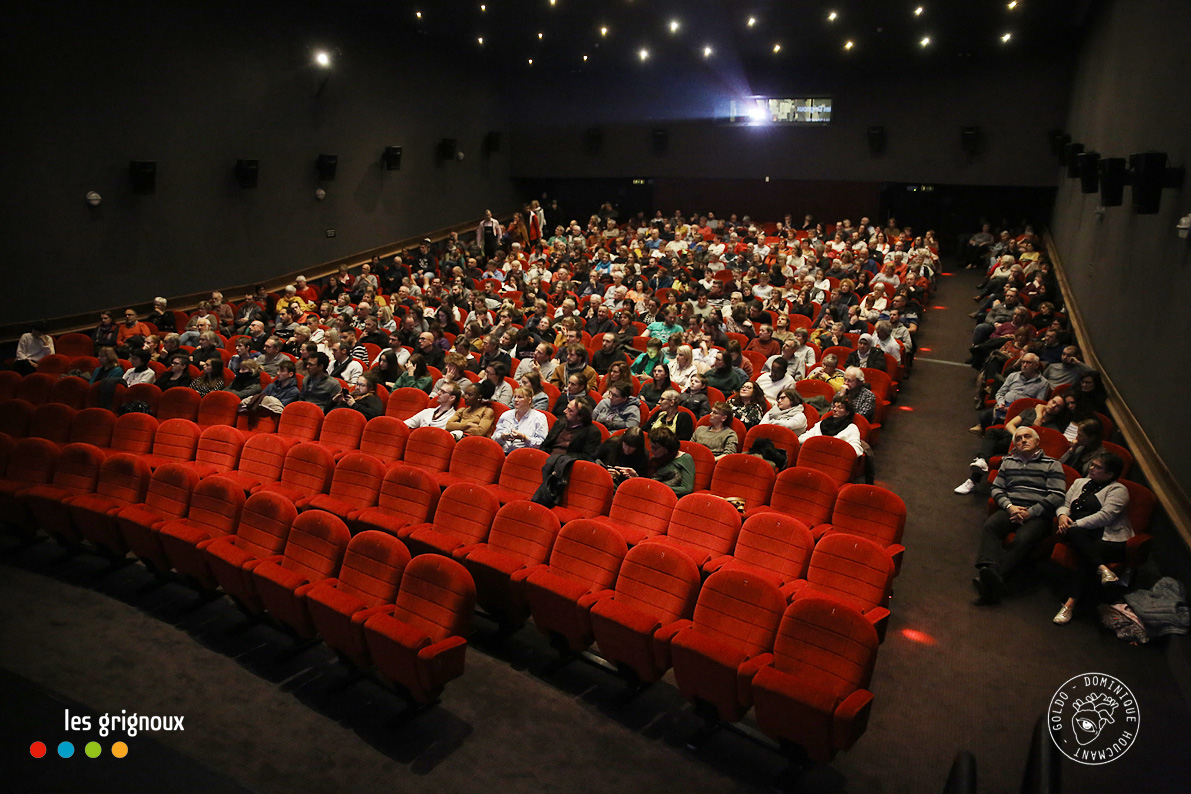
“Culture has been badly damaged by the crisis, relegated to the background at best, although it is an economic sector that employs more than 200,000 people, has an essential role in society, is essential to the development of critical thinking, and essential to the development of individuals, among many other things. Abandoning the cultural sector says a lot about political priorities. This is a bitter observation, but one that should push us to question ourselves in the long term about the type of society we want.
“As for the government of the Wallonia-Brussels Federation, it has put things in place, but it took a long time to get started and sometimes there was little consultation. Artists and technicians continue to bear the brunt of the crisis, as do cultural institutions. We’ve received an enormous amount of support from the public. Over the summer, we proposed our lowest tariff, plus a voluntary higher tariff. A quarter of all tickets were sold at this higher solidarity price. We think it will take two or three years to return to the same audience figures as before the crisis. And to do that, we must also reinvent ourselves.”
‘We now know why we pay so many taxes!’
Jan Van Esbroeck is co-CEO of the Sportpaleis Group, which owns the country’s largest event hall – the Sportpaleis in Antwerp – as well as Forest National in Brussels and other large performance venues in Antwerp, Ghent and Hasselt.
“Our income has fallen by more than 90% this year. But Belgium has a very good social safety net – we now know why we pay so many taxes! – meaning that our people can claim temporary unemployment. This is the case for over 80% of our staff.
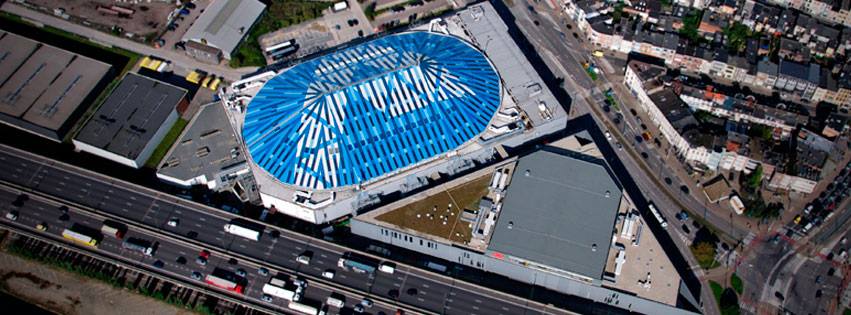
“In comparison with a lot of other European countries, I think we have to be grateful that we were able to open up our smaller venues. I believe there is less risk going to a theatre than going to a bar or a restaurant. The biggest risk involves getting to the venue and back as well as in queuing at bars, etc. That is why we limited the experience to the essentials: the show, and that’s it.
“We have sent questionnaires to our visitors and see they are becoming more comfortable with going to a performance and accepting the limitations involved. We hope to keep our theatres open going into next year and gradually be able to shift to a more normal business model that includes food and drinks. This will, however, take some time. I hope that the situation in the smaller venues will be more or less back to normal by the second quarter of 2021. The larger arenas will follow, in my opinion, in the third quarter.”
‘It will be a difficult year’
Maarten Bresseleers is coordinator of the Performing Arts Social Fund, the skills and development organisation of the professional performing arts and music sector in the Flemish Community.
“I think we responded very quickly and with a great deal of flexibility. It took some effort and time to convince the authorities that the sector could organise performances in a safe manner. The lockdown gave a strong push to the digitalisation of the sector and opportunities surfaced to reach new audiences in new ways. There were several measures taken by the federal, regional and local governments to support not only the organisations in the sector but also the people working in it, artists included. The crisis made it clear that working with short-term contracts is not sustainable. We have to engage in fair practices to avoid this situation again.
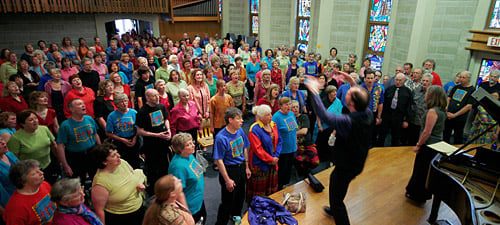
“At the beginning of the lockdown, the sector was targeted too easily, as if going to performances was too risky. That idea was countered, and the sector could finally participate in discussions on the measures that applied to it. I think the governments did what they had to do. They now have to keep doing this until we can organise events and performances without measures. Our biggest fans are not afraid to come back, but not all people are convinced yet. It will be a difficult year. How many people will still be working in the sector? Will our companies still be touring around the world as before? Will people come back to performances? Could we attract new crowds with new (digital) innovations? There are a lot of questions...”
Interviews were conducted before further restrictions came into place at the end of October. This article appears in The Bulletin's digital magazine
About the authors
Sarah Schug from Germany has a master’s degree in political science from FU Berlin. She moved to Brussels more than a decade ago where she has worked for a communication agency, a non-profit and the Brussels studio of ARD. At culture bimonthly The Word, she learned magazine-making from the ground up. Since 2014, she has worked as a freelance writer for publications in Belgium and Germany, writing about art, culture and design. She’s also the author of Isle of Art, a book exploring Iceland’s art scene, and the founder of Seeyouthere.be, an online magazine promoting Belgium’s cultural offering.
Sarah Crew is the editor-in-chief of The Bulletin, Expat Time and WAB. Born in London, she is a City University journalism graduate and worked as a newspaper reporter in the UK and Sydney, Australia, before moving to Belgium in 1989. Sarah has worked for The Bulletin since 2005 and is active in a number of mental health organisations as well as being a committee member of the Brussels British Community Association.
Lisa Bradshaw is the editor-in-chief of Flanders Today, The Bulletin’s sister publication, and a daily contributor to The Bulletin. She also contributes to Ackroyd Publications’ other titles, including WAB and Expat Time. She has worked as an editor, proofreader and writer for other publications and organisations in Belgium and the UK, including Flanders Audiovisual Fund, Metropolitan, European Journal of Hospital Pharmacy and Ghent University. Previous to her arrival in Belgium, she served as the arts editor for an alternative weekly in the US.







